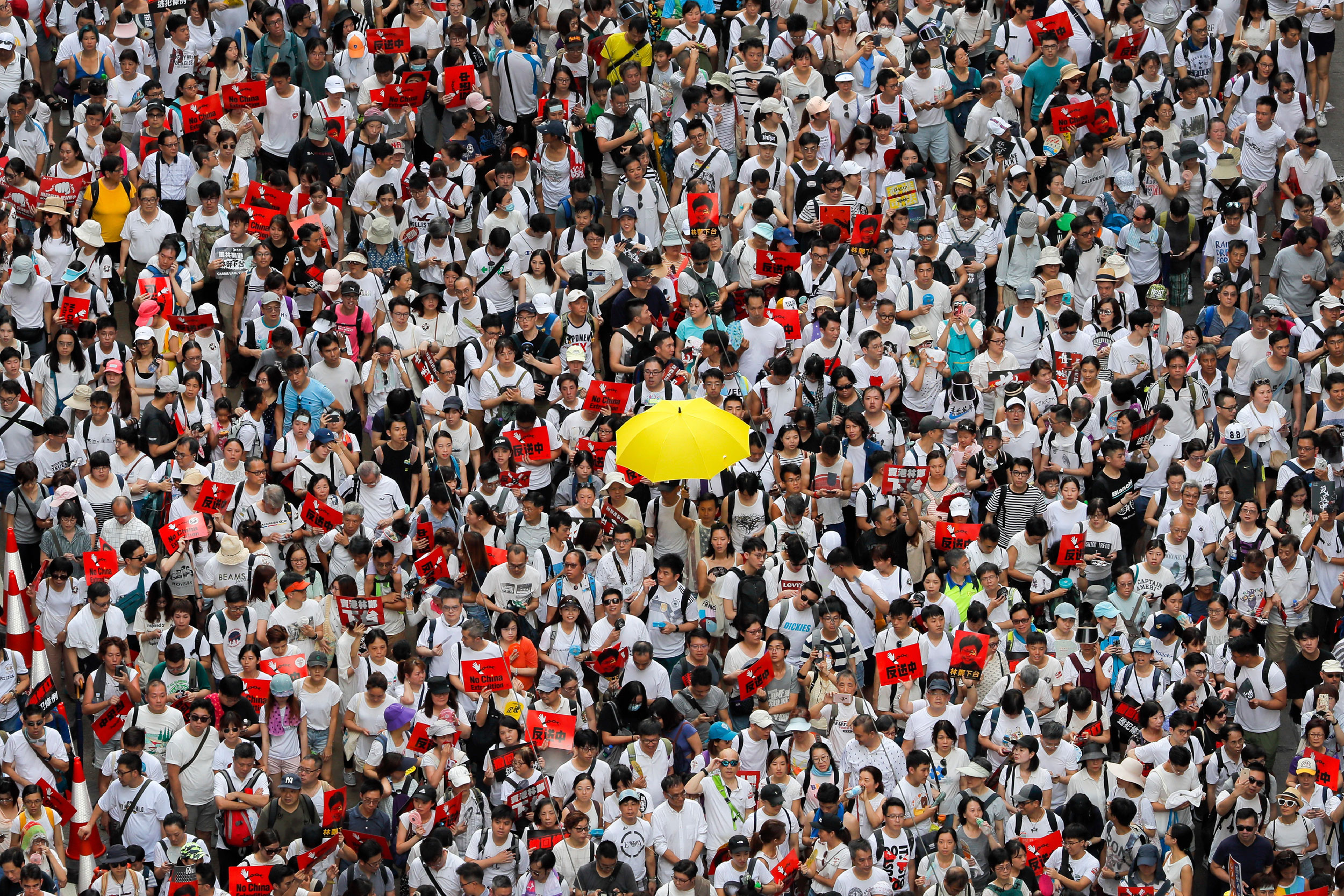Hong Kong was plunged into a fresh political crisis on Sunday after thousands of people took to the streets to thwart a proposed extradition law that would allow suspects to be sent to Mainland China to face trial.
Organisers said their initial estimates put the turnout at well over half a million people, saying it outstripped a demonstration in 2003 when 500,000 hit the streets to challenge government plans for tighter national security laws.
Those laws were later shelved and a key government official forced to resign. Sunday’s outpouring was already raising the pressure on the administration of Hong Kong chief executive Carrie Lam and her official backers in Beijing.
“She has to withdraw the bill and resign,” veteran Democratic Party lawmaker James To told crowds gathering outside the city’s parliament on Sunday night.
“The whole of Hong Kong is against her.”
After James spoke, thousands were still arriving, having started the march five hours earlier, filling four lanes of a major thoroughfare. Some sat in a nearby park singing hallelujah, but on a nearby road tensions were building after hours of peaceful protest.
Riot police armed with batons and helmets were gathering while government-funded broadcaster RTHK reported that they used pepper spray on six masked men trying to block the road.
Lam had yet to comment on the rally.
The demonstration capped weeks of growing outrage in the business, diplomatic and legal communities, which fear corrosion of Hong Kong’s legal autonomy and the difficulty of ensuring basic judicial protections in Mainland China.











